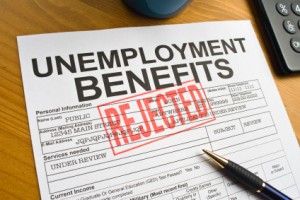Unemployment Insurance is a social welfare program that is jointly run by the State and Federal Govt. These plans are designed to provide temporary financial assistance to anyone who lost their jobs due to no mistake of theirs. While one of the primary eligibility criterion for anyone to qualify for UI is that they should have been laid off for a fault that wasn’t theirs, sometimes people who quit voluntarily too may qualify.
Qualifying for UI if you quit is harder than when you were laid off. Which is why this article is going to outline how and when someone can claim UI when they resigned on their own accord.
Quitting Due To Hostile Environment
If you quit your job because the atmosphere at work was hostile or if you felt threatened, the authorities often show leniency while considering your application for the dole. This still doesn’t guarantee your eligibility as the officials will conduct a probe before they decide whether you are giving a true account of the situation.
In most cases, your eligibility often depends on the extent of hostility you faced at work. Some of the accepted reasons are –
-
Your office was involved in some form of criminal/illegal activity
-
Your office had safety issues which were reported to higher officials but never fixed
-
Harassment or discrimination directed towards you
-
Hostility following you reporting any incorrect activities to your superiors
Apart from the above mentioned reasons, there are some others which are accepted as valid reasons for a voluntary quit. They are –
-
Quitting to take care of a sick family member
-
Quitting because you have a temporary disability or because you are medically unfit for the job
-
Quitting because you face domestic violence at home and it was no longer possible for you to continue working
How To Apply For UI After Quitting?
As soon as you put in the letter, you should ideally start applying for other jobs or apply for UI if you cannot work immediately. The typical eligibility criteria are as follows-
-
Minimum wages and hours worked during base period
-
Quitting due to a fault that wasn’t yours
-
Actively seeking new job opportunities
-
Available and ready for full time work
Apart from the part where you voluntarily quit, the rest should be met compulsorily. You can use our eligibility checker tool if you are unsure.
Keeping Up The Positivity
Irrespective of why you quit your job, it is important that you stay positive and think calmly to figure out a future plan. If there are solid reasons backing your resignation and if you meet the other requirements, chances are you will qualify for UI. Should you need any form of support of you if need to clear any questions, feel free to connect with the users on our discussion forum.
Never give up looking for new jobs and remember, stay happy and positive!

